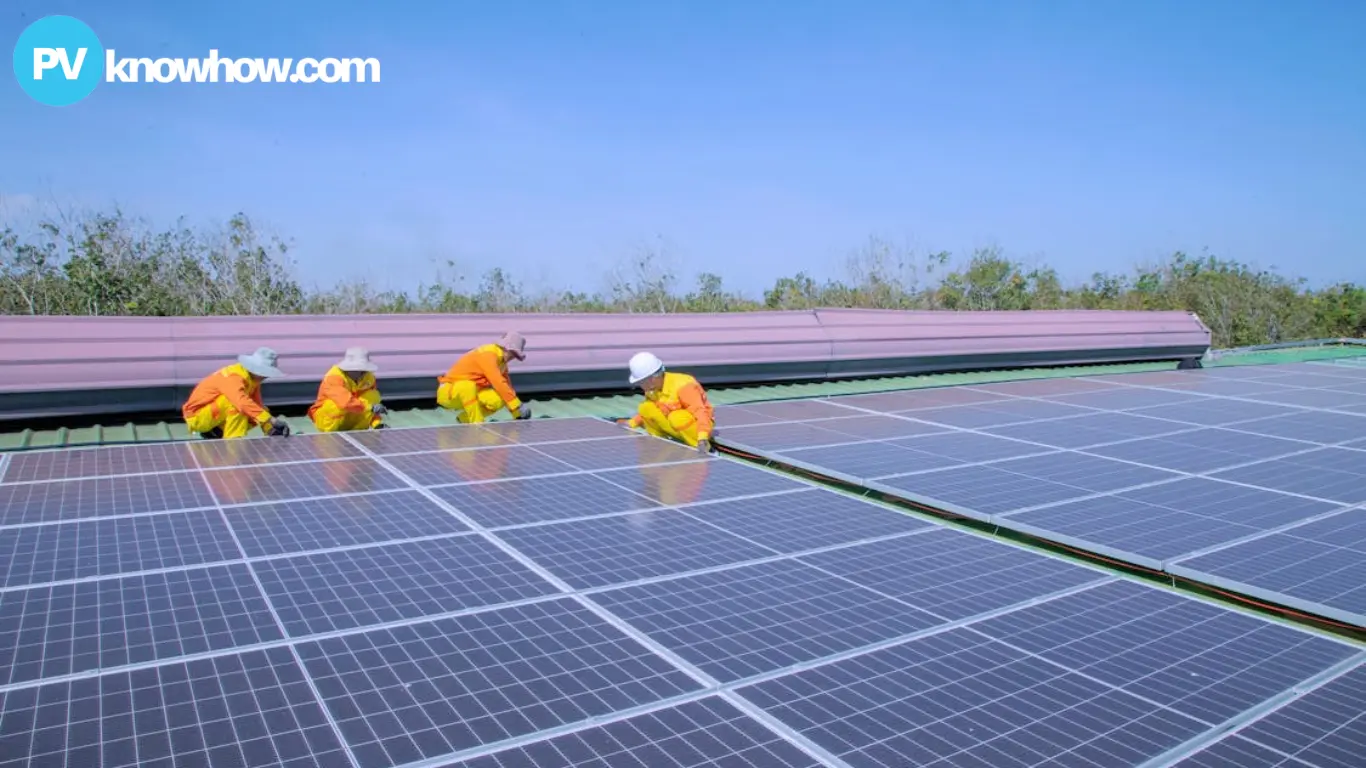Dhash PV Technologies Limited has received government approval to establish a major solar PV manufacturing plant in Sira, located in the Tumkur district of Karnataka. With an investment of INR 346.35 crore, this new facility will incorporate advanced equipment and technology, marking a significant milestone in India’s ongoing push for self-reliance in solar power manufacturing.
Strategic Importance and Economic Impact
The establishment of this solar PV plant is a critical step toward meeting the growing demand for renewable energy systems in India. The facility is expected to produce high-efficiency solar PV modules, utilizing the latest advancements in technology to enhance the output and efficiency of solar energy systems while simultaneously reducing the overall costs associated with their production. This plant will set new standards in the solar energy industry, positioning India at the forefront of global solar technology innovation.
Economically, the project is poised to have a transformative impact on the Tumkur district. It is expected to create numerous jobs, providing employment opportunities and skill development for the local population. The investment by Dhash PV Technologies will not only contribute significantly to the local economy but also support India’s broader goal of transitioning to a clean energy future. By boosting local employment and fostering economic growth, the plant is expected to become a cornerstone of the region’s industrial development.
In addition to job creation, the new facility will attract ancillary industries, including those involved in the production of solar components and related technologies. This clustering effect will further stimulate economic activity in the region, creating a thriving ecosystem around renewable energy manufacturing.
Contribution to India's Renewable Energy Goals
India has set ambitious targets for expanding its renewable energy capacity, aiming to achieve 175 GW of renewables by the next year and an even more ambitious goal of 450 GW by 2030. Central to these targets is increasing the share of solar electricity to at least 10% of total electricity generation by 2030 and reducing import dependency for solar modules to less than 3% by the same year.

Image: Collected
The new solar PV manufacturing plant in Sira will play a decisive role in achieving these goals. By reducing reliance on imported solar modules, the plant will enhance energy security and support the country’s mission to increase the share of domestically produced solar modules. This move is critical in reducing the vulnerability of India’s renewable energy sector to global supply chain disruptions, which have been particularly evident during the COVID-19 pandemic.
Furthermore, the plant’s establishment underscores the dynamism of India’s renewable energy sector and highlights the potential for significant investments in the country’s renewable energy infrastructure. As India continues to prioritize sustainability, the ability to produce high-quality solar modules domestically will be instrumental in achieving its environmental and economic objectives.
Strengthening Local Supply Chains
The Sira plant will also strengthen the local supply chain for solar components, addressing a key challenge that has hindered the large-scale growth of renewable energy in India. By producing solar technology domestically, the plant will help mitigate delays and reduce costs associated with importing solar technology, thereby accelerating the deployment of renewable energy across the country.
The plant’s advanced manufacturing capabilities will also contribute to reducing the carbon footprint associated with solar module production. By minimizing the need for long-distance transportation of components, the plant will help lower greenhouse gas emissions, further aligning with India’s environmental goals.
Additionally, the cutting-edge manufacturing technologies employed at the plant will elevate India’s technological capabilities in solar energy. This advancement is crucial for maintaining India’s competitive edge in the global solar market and for achieving the country’s renewable energy ambitions. By fostering innovation and supporting the development of new technologies, the Sira plant will play a pivotal role in ensuring that India remains at the forefront of global efforts to combat climate change.
Scaling Up Renewable Energy Capacity
India’s solar industry has been experiencing rapid growth, and the establishment of new manufacturing plants like the one in Sira will be essential for scaling up the country’s renewable energy capacity. The increased manufacturing capability will not only meet domestic demand but also position India as a major exporter of solar PV modules to international markets.
As Indian companies like Dhash PV Technologies continue to scale up production, India is set to become one of the world’s largest producers of solar power. The enhanced manufacturing capacity will also facilitate partnerships with global firms and participation in international projects, further solidifying India’s role in the global renewable energy landscape.
Moreover, the success of the Sira plant could serve as a model for future investments in the renewable energy sector. It demonstrates the viability and profitability of solar manufacturing in India, encouraging both domestic and international investors to contribute to the country’s clean energy transition.
The Sira plant represents a significant step forward in India’s renewable energy journey, contributing to both economic growth and environmental sustainability. By investing in cutting-edge technology and expanding its manufacturing capabilities, India is well on its way to achieving its vision of becoming a global leader in solar energy.
